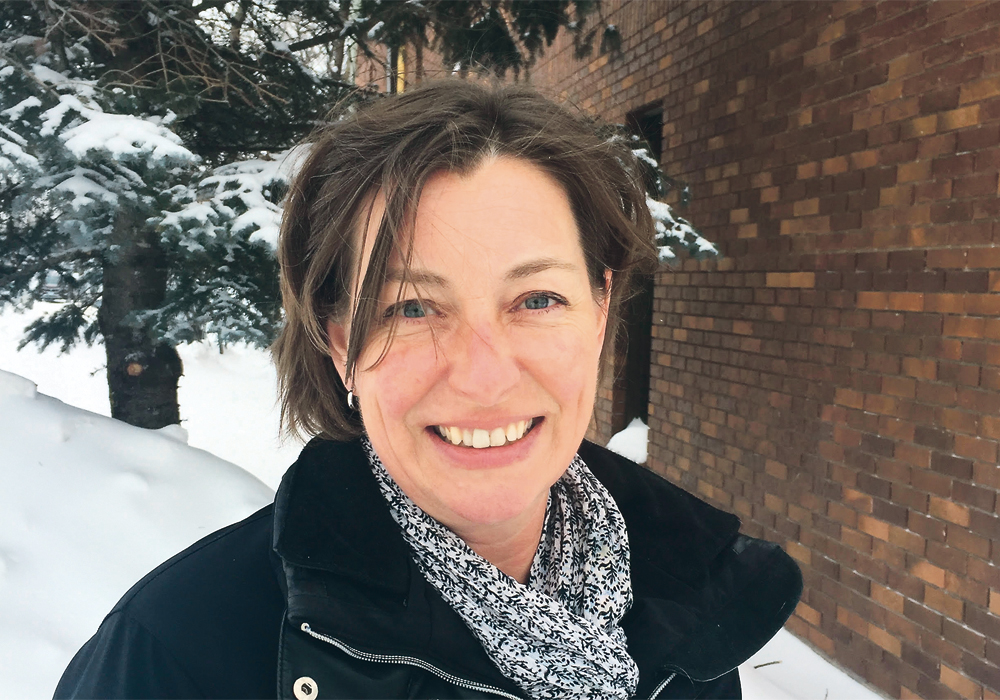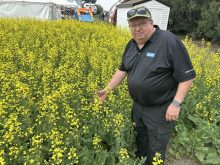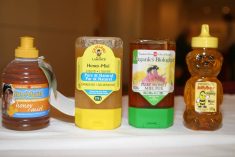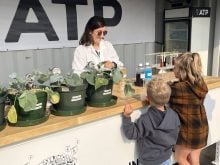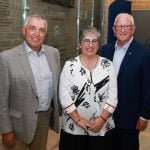Millions of Canadians have obsessions and compulsions.
Some buy lottery tickets. Others, for reasons likely based in insanity, have to root for the Toronto Maple Leafs.
Brenda Tjaden has a different compulsion — running her own business.
“I’m a serial entrepreneur. I just couldn’t resist it,” said Tjaden, the co-founder of FarmLink Marketing Solutions, who is now the founder and chief executive officer of Sustainable Grain.
Tjaden, who lives northeast of Winnipeg, officially launched Sustainable Grain in the second week of February. The company is a consultancy, providing services and expertise to organic farmers, regenerative producers and others in the niche crops sector.
Read Also

First annual Ag in Motion Junior Cattle Show kicks off with a bang
Ag in Motion 2025 had its first annual junior cattle show on July 15. The show hosted more than 20…
“It’s not in our plans to build a grain company, or any physical asset. We’re more of a knowledge company. We’re trying to fill the information gap, to make life easier for participants in high value (markets),” said Tjaden. “That’s how I see us fitting in … providing information, relationships, networks, resources, to create that supply of safe, nutritious and local grain.”
The unofficial launch of the company happened Feb. 11 in Winnipeg at a Sustainable Grain workshop on agroecology and the economics of organics.
Before she left FarmLink a couple of years ago, Tjaden built up the company to one of the larger grain marketing firms in Canada. FarmLink now has more than 30 employees and hundreds of clients across the Prairies.
After FarmLink, Tjaden took some time to think about her next move. She, however, isn’t the type who spends her days on the couch watching The Price is Right.
Tjaden began studying the opportunities in organic grain production and met with people in the organic trade.
“For two straight summers I went to every organic farm and field day that I could find.”
North America has a production shortage of organic grains and oilseeds, so imports from places like India, Ukraine and Hungary have become normal in Canada and the United States.
Tjaden believes there’s a massive opportunity in Western Canada to displace those imports and help satisfy the global demand for organic foods.
“Nothing against conventional agriculture … but the markets for higher valued food are not going away. They are growing,” she said. “I just looked at the economics … and realized, OK, there’s money here.”
On top of organics, Tjaden hopes to work with farmers and others working in regenerative agriculture — broadly defined as practices that improve soil health and reduce dependence on fertilizer and pesticides.
Ryan Boyd, who farms north of Brandon, said it’s likely that hundreds of Canadian farmers are already practicing some form of regenerative ag.
“It’s liberating when you start embracing the principles of soil health…. It’s not just relying on A, B, C inputs, add them together and hope the weather co-operates.”
To Tjaden, it’s obvious that many consumers want food produced in a certain way and are willing to pay for it.
“One hundred percent of the time, the right way to grow a business is to respond to a market demand and fill gaps. And to create value that way,” she said. “How do we help the farmers and the food companies who are interested in catching up with modern consumer trends?”
Sustainable Grain will offer a range of services, including helping farmers who are making the transition to organic. Tjaden and her two employees will get the farm set up on a record-keeping platform and guide an ideal cropping plan to make things easier and simpler.
“Kind of frame the decisions, so the farmer really just has to farm.”
They will also act as a middle-man, between companies and producers to create value for farmers and reliable supplies for buyers.
“One of our services is origination. I hired a grain trader … who is piecing together those relationships,” Tjaden said.
This isn’t the first time Tjaden has ventured into sustainable agriculture.
In the early 2000s she was part of the Pesticide Free Farmers Co-op. It was a production system where pesticides were not used from crop emergence to harvest. The plan was to create a label and sell the grains at a premium price.
The concept didn’t pan out, but something similar might work now.
Pesticide residues have become a thorny issue in the grain industry. Many countries and buyers are testing shipments for residues of glyphosate, the active ingredient in Roundup.
As well, U.S. consumer groups have filed lawsuits over glyphosate residues in granola bars and breakfast cereals.
The backlash against pesticides in grains isn’t a surprise, Tjaden said.
“As a consumer myself, I don’t want pesticides in my food…. If that’s something controversial, so be it.”




